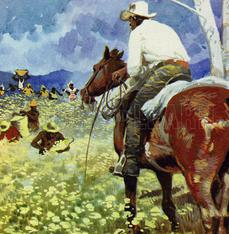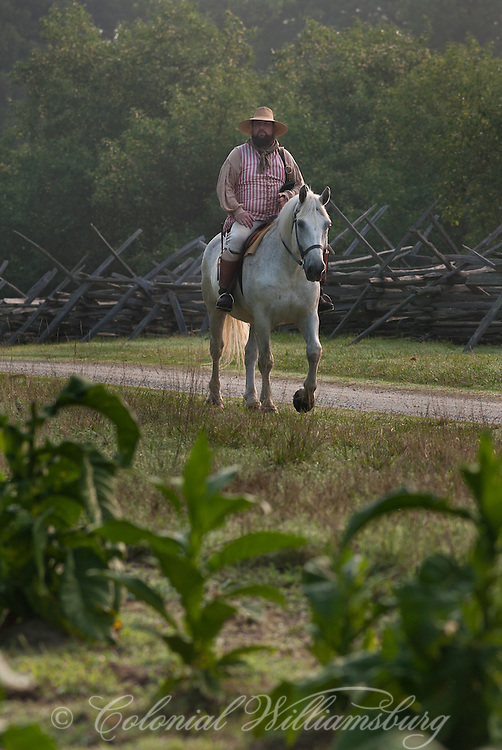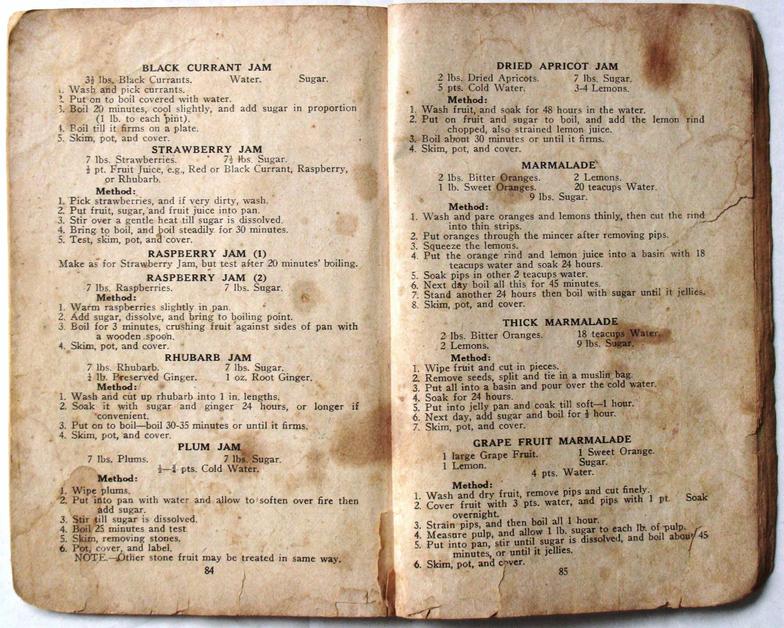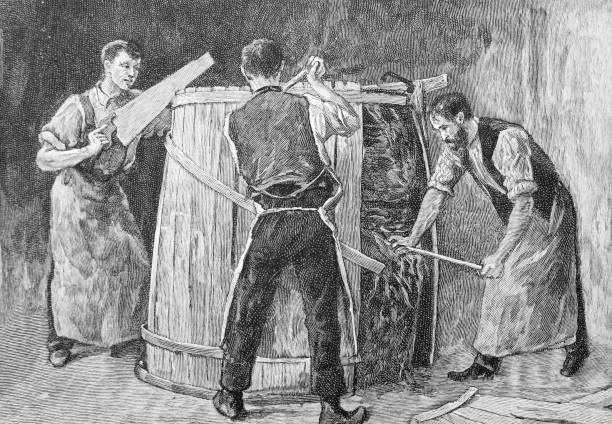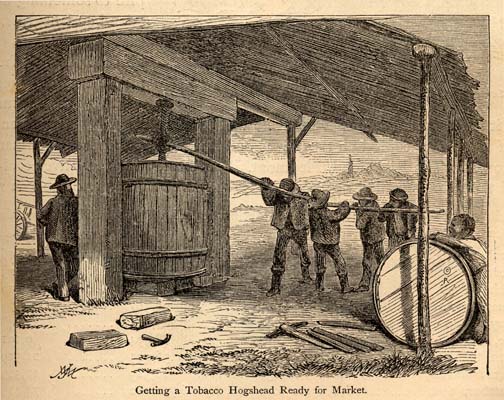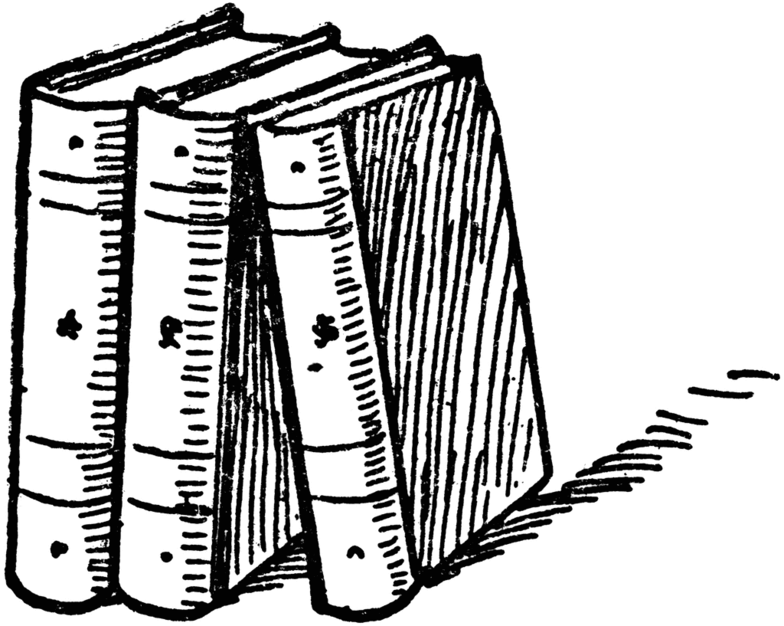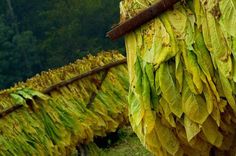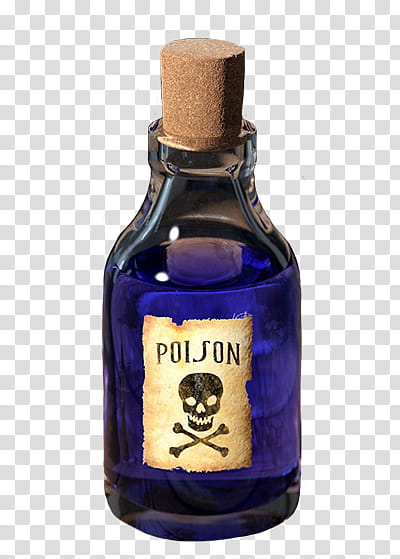SoulsinMyFamily.org
Great George and Ursula
"The Georges"
In January 1772 Thomas Jefferson married a young widow, Martha Wayles Skelton. A year later he purchased a slave family at Mrs. Jefferson's request. He wrote in his Memorandum Book:
"Jan 21. Bot. Ursula, and her sons George and Bagwell of Fleming's estate for L210. 12. month's credit." ( 1)
He also wrote at a later time:
"Dec. 30. Assumed to pay T. Garth 3/ by order Wm. Pond (for great George)." (2)
Years later, in 1810, Mr. Jefferson mentioned his purchase of Ursula:
"...mrs Jefferson was very desirous to get a favorite housewoman of the name of Ursula. I attended the sale therefore and purchased her & two young boys her sons. Meriwether Skelton, who attended the sale, & purchased largely, run me up to 210.L, an exorbitant price the woman was old, & the boys infants." ( 3)
A Special Purchase
So began the new lives of one of Monticello's most important slave families - the family of Great George and Ursula. Great George would become an overseer on Mr. Jefferson's farms. Ursula, a pastry cook, worked in the kitchen under the South Pavilion. Her excellent cooking skills, known to Mrs. Jefferson, was the reason for the purchase of the family. Their sons Little George, Bagwell, and Isaac, would all serve Mr. Jefferson in various ways.
From the beginning, Great George and Ursula stand out in Mr. Jefferson's record books. When other adult slaves were issued seven yards of linen for clothes, George and Ursula were given eight yards. When other adults received eight salted fish as part of their food ration, George and Ursula received ten each. Time after time they were issued larger quantities than any other slave.
These examples from the Farm Book, pages 41
.
Great George was singled out in another way when he began to work as an overseer on the farm. He was paid an annual wage of L20.
"May 4. Pd. old George on account 9.37.D. Note I am to give him L20 for the years 97. & 98." (5)
As overseer, Great George was responsible for the slaves working at two of Monticello's outlying farms. Thomas Mann Randolph, Mr. Jefferson's son in law, reported on Great George's progress when Mr. Jefferson was away from home:
"Agricultural affairs proceed both at Mont'o. and Shadwell: George is steady & industrious - Page I think is as anxious about his duties as any Overseer I ever knew. The thorough confidence you place in the companies of tradesmen is less abused than I expected but I am still convinced that being under no command whatever they will become idle...tho' I am clear that it confirms them in honesty." (6)
Great George as Overseer
William Page, the Overseer
Mr. Page, one of the white overseers, was displeased to have Great George working with him as a fellow overseer. Just a few days earlier Mr. Jefferson had mentioned to Mr. Randolph:
"I thank you for your interference at Monticello & Shadwell. I had directed the managers at both to apply to you for your counsel when at a loss, and have only been prevented by the state of your health from asking a more onerous attention. George needs to be supported & Page to be moderated." (7)
Just a few years later, Mr. Jefferson's son in law, Jack Eppes, writes of great concern with the overseer's violent ways:
"By a letter from Mr Lilly I learn that he has failed in hiring hands for the levelling at Pant-Ops. The terror of Pages name he says prevented the possibility of hiring them. This shall not in future be a bar to our operations there - It has been long my wish to part with Page notwithstanding his skill and industry - & nothing but my being unable to procure a suitable character last year would have caused me to continue him longer. I will however at any rate part with him at the end of the present year, and indeed if I was myself perfectly satisfied with his conduct, such an evidence of the publick sentiment against him would induce me to give him up." (8)
Two Opposing Forces
Great George's role as overseer forced him to balance between two opposing forces, the requirements of his master to produce a good crop, and the needs of the slaves - some of whom were his own family. His son Bagwell and daughter in law Minerva sometimes worked under his direction.
Through the years Mr. Jefferson seemed to remain confident in Great George's abilities. Unlike most slaves and many white overseers, Great George knew how to read and write, a valued skill to Mr. Jefferson.
"I left with old George written directions about the accomodation of mr Arnold. I also pointed out to him the place where I left written directions for his employment. I think it was on the top of the glass clock-case in the parlour." (9)
Thomas Mann Randolph was in turn, keeping Mr. Jefferson informed as to Great George's progress with his tobacco crop:
"George has not yet prized his Tobacco tho' I urge him to it
every time I meet him - I wish he may not have suffered it to spoil during the winter, that was hinted to me today...he is not careless in general tho' he procrastinates too much." (10)
Mr . Randolph is less satisfied with George just a month later when he writes:
"Your affairs at Shadwell go on well; the whole crop of Tobacco (46000) is planted & stands - George is not so forward - he cannot command his force: there were in my absence some instances of disobedience so gross that I am obliged to interfere & have them punished myself. Several of the people had actually planted crops of Tobacco before I knew they designed it - I have refused permission to cultivate it..." (11)
Queries
How do you prize tobacco?
Why would skills of reading and writing be an advantage to a slave owner?
Could these skills ever be a disadvantage to an owner? To a slave?
Meet Little George
Great George's oldest son was also named George - but Mr. Jefferson wrote his name as Little George or Smith George in the Farm Book. The Jefferson family also called the family "the Georges". Martha Jefferson Randolph wrote to her father:
"...to your enquiries relative to poor Jupiter he too has paid the debt to nature; finding himself no better at his return home, he unfortunately conceived him self poisoned & went to consult the negro doctor who attended the George's..." (12)
Little George supervised the nailery and blacksmith shop and seemed to do a good job. Thomas Mann Randolph wrote to Mr. Jefferson:
"I scarcely look to the Nailery at all - George I am sure could not stoop to my authority & I hope and believe he pushes your interests as well as I could...' (13)
Ursula and the Cookery Book
Tragedy Strikes the Georges
Tragedy struck "the Georges" in the year 1799. Smith George, after running the Monticello nailery for many years, became sick and consulted a conjurer. Mr. Jefferson mentioned his illness in a letter to a nail customer, John McDowell :
"...the manager of my nailery has been sick upwards of a month, & is but just getting about. this has occasioned less work to be done, and not well enough done to trust it to a distant market..." (16)
Little George must have still been sick the next month, when Mr. Jefferson noted in his Memorandum Book:
"Gave Perkin's Sam order on Isaac Millar for 10.D. in full for attendance on smith George." (17)
In February 1799, Martha Randolph wrote to her father:
"...George (smith) continues ill confined in Milton and some of the others are unwell, I do not recollect who but Mr Randolph has been over several times lately so I suppose they have not suffered." (18)
By June, Smith George was dead, followed by the death of Great George in November. Ursula died just two months later. Mr. Jefferson heard the sad news from Martha:
"Ursala is I fear going in the same manner with her husband & son, a constant puking, shortness of breath and swelling first in the legs but now extending itself..." (19)
The Conjuror
Martha mentioned to her father that "the conjurer" had escaped the neighborhood and that he should be charged with murder.
"...the doctor I understand had also given her means as they term it and upon Jupiter's death has absconded. I should think his murders sufficiently manifest to come under the cognizance of the law." (20)
The sickness of "the Georges" as well as other slaves in the community was a concern of Mr. Randolph when he wrote this note to Mr. Jefferson:
"...The poisons of the Buckingham Negroe conjuror appear to have a power of unstringing the whole system beyond recovery in a short time... The instances of death (with the symptoms of your Negroe family), among the latter, are numerous in this part of the Country within my knowledge...The poisons of the Conjuror have the most astonishing effect in producing melancholy & despair- perhaps greatly operative in the catastrophe." (21)
Mr. Jefferson's Concerns
Upon hearing of their deaths, Mr. Jefferson responded with this comment:
" ...the state of Ursula is remarkeable. the symptoms & progress of her disease are well worthy attention. that a whole family should go off in the same & so singular a way is a problem of difficulty." (22)
Queries
Jefferson provided a doctors care for his slaves. Why would they choose a conjuror to attend them?
Is it possible Mr. Jefferson was paying the fee for this "doctor" who in the end contiributed ot the deaths of several Monticello slaves?
Was Perkins Sam the conjuror?
Ursula's cooking skills were promoted by her son Isaac. In his memoirs he talks about his mother and her work in the Monticello kitchens.
"His mother was named Usler but nicknamed "Queen," because her husband was named George and commonly called "King George." She was pastry cook and washerwoman; stayed in the laundry. Isaac toted wood for her, made fire, and so on. Mrs. Jefferson would come out there with a cookery book in her hand and read out of it to Isaac's mother how to make cakes, tarts and so on." (14)
Mr. Jefferson was impressed with some of Ursula's other skills when he mentions in his orders:
"I must get Martha or yourself to give orders for bottling the cyder in the proper season in March. there is nobody there but Ursula who unites trust & skill to do it. she may take any body she pleases to aid her. "( 15)
Queries
Why would older women and very young boys be worth less?
Why would a skilled house servant be valuable to Mr. Jefferson
Why did Mr. Jefferson pay "an exorbitant price for these three slaves?
Isaac's Inheritance
Isaac, Great George's younger son, managed to avoid treatment by the conjuror and lived a long life. He was trained as a nail maker and blacksmith, working under the supervision of his brother, Little George.
Unlike
most slaves who acquired only a few chicken or some household goods as
their property, Great George managed to make a major investment. He
owned a colt as his personal property. Mr. Jefferson paid eleven dollars
to Isaac as his inheritance from his father for the colt.
"Gave Isaac ord. on Higginbotham to amt. of 11.D. This is for his moiety of a colt left him by his father. (23)
While "the Georges" are not as well known as the Hemings family of Monticello, their endurance, hard work, and family ties are to be admired. Great George's work as an overseer, Ursula's skill as a cook, and Little George's blacksmithing talent remind us of the never ending work required of slaves through their lifetimes.
Queries
Could the Jefferson family have prevented the deaths of Great George, Ursula, and Little George?
Could they forbid their slaves from consulting a conjuror?
Sources
(1) Memorandum Book, January 21, 1773, Founders Online.
(2) Memorandum Book, December 30, 1774, Founders Online.
(3) Thomas Jefferson to Archibald Thweatt, May 29, 1810, Founders Online.
(5) Memorandum Book, May 4, 1799, Founders Online.
(6) Thomas Mann Randolph to Thomas Jefferson, February 3, 1798, at Belmont, Founders Online.
(7) Thomas Jefferson to Thomas Mann Randolph, January 25, 1798, Founders Online.
(8) John W Eppes to Thomas Jefferson, February 10, 1803, Founders Online.
(9) Memorandum for Mr.Arnold, April 12, 1798,Founders Online.
(10) Thomas Mann Randolph to Thomas Jefferson, April 29, 1798, Founders Online.
(11) Thomas Mann Randolph to Thomas Jefferson, June 3, 1798,Founders Online.
(12) Martha Jefferson Randolph to Thomas Jefferson, January 30, 1800, Founders Online.
(13) Thomas Mann Randolph to Thomas Jefferson, April 22, 1798, Founders Online.
(14) Jefferson at Monticello: Recollections of a Monticello Slave, Bear, page 3.
(15) Thomas Jefferson to Thomas Mann Randolph, February 4, 1800, Founders Online.
(16) Thomas Jefferson to John McDowell, October 22, 1798, Founders Online.
(17) Memorandum Book, November 25, 1798, Founders Online.
(18) Martha Jefferson Randolph to Thomas Jefferson, February 22, 1799, Founders Online.
(19) Martha Jefferson Randolph to Thomas Jefferson, January 30, 1800, Founders Online.
(20) Ibid.
(21) Thomas Mann Randolph to Thomas Jefferson, April 19, 1800, Founders Online.
(22) Thomas Jefferson to Thomas Mann Randolph, March 31, 1800, Founders Online.
(23) Memorandum Book, December 14, 1799, Founders Online.
Prizing tobacco into a hogshead barrel
Packing tobacco in a hogshead
